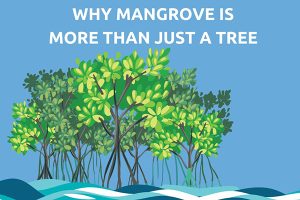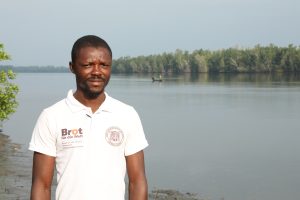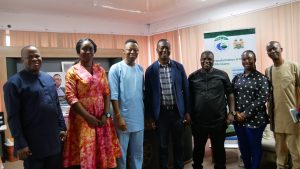Mangrove forests are rich in diverse resources, supporting the coastal livelihoods of people living in and around these areas. These coastal communities have strong economic links with the coastal ecosystems with which they intermingle. Despite their huge importance, mangroves have not survived the impact of human activities. The main threats to mangroves come from deforestation for agriculture, pollution and coastal development. These activities have led to a significant loss of mangrove forests.
As a way of protecting these vulnerable ecosystems from the adverse effects arising from human activities, the Village Savings and Loan Scheme has been used as a strategic approach not only to mitigate climate change but also to increase the income of rural households thereby making them financially independent.
In a bid to support the financial independence of coastal communities in the Yawri Bay Marine Protected Area, the Conservation Society of Sierra Leone, with support from the International Union for Conservation of Nature (IUCN) through the Blue Natural Capital Financing Facility (BNCFF), established and provided training on financial management and leadership skills for five (5) Village Savings and Loan Association (VSLA) in five (5) communities including Ribbi, Morchail, Moyambe, Samu and Shengebull.
The training, which spanned from 14th to 28th March, 2024, was facilitated by Mr. Musa Wullarie from the Federation of the Urban and Rural Poor (FEDURP), and brought together a total of 150 VSLA members from across the five groups comprising 30 individuals including 25 females and 5 males. Expatiating on the importance of VSLA, Mr. Osman Kargbo of Morchail community said, “… In addition to enhancing our financial independence, I believe the VSLA scheme will further bring us together as members in our various communities.”
The training was climaxed by the provision of each group with a start-up fund of Le 6,000 and a VSLA tool kit, which comprised savings boxes, ledger books, pens, rulers, tables and chairs.
In the end, there were clearly defined governance structures with key executive positions, including chairpersons, treasurers, key controllers, and collectors, all held by women. The position of Secretary General in each group was assigned to a man as this required a certain level of literacy.
Learn more about our engagement at the Yawri Bay on CSSL-BNCFF project



